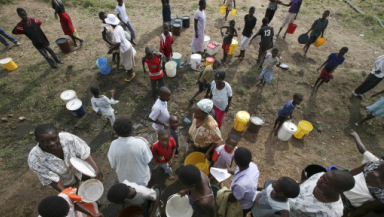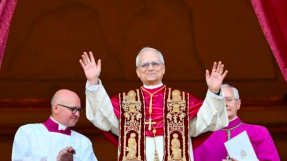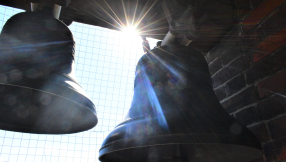
Zimbabwe is facing a "dire" food situation after erratic rains and "unusual" mid-season droughts triggered critical levels of crop failure, Christian Aid has warned.
The World Food Programme estimates the number of people who will need food assistance in the coming months at two million.
Christian Aid said the insufficient maize and cereal harvests, low grain stocks and inflated prices have forced the Zimbabwean government to make expensive food imports primarily from neighbouring Zambia and South Africa.
Christian Aid's country programme manager for Zimbabwe, Miriam Machaya, said that Insiza district had been particularly hard hit, with partner organisation Zimpro reporting that only three out of the 23 wards recording surplus food.
"The food security situation in Zimbabwe is dire, especially in the arid and marginalised Matabeleland provinces where Christian Aid and our local partner organisations work," warns Miriam Machaya, country programme manager for Christian Aid Zimbabwe.
"As well as poor rains and drought, a whole host of negative factors including widespread poverty constraining even basic farming investment, the late or total unavailability of government-funded seeds and fertilisers, damaging farming methods, and pest outbreaks, have contributed to frightening levels of potential hunger and malnutrition."
The impact of the unpredictable weather has been compounded by souring relations with international donors, she further warned.
"The recently concluded election outcome and policies of President Mugabe's new political dispensation is also likely to have a bearing on food and income availability, as relations with donors continue to decline," said Machaya.
"Christian Aid's Zimbabwe programme and partners are currently undertaking rapid emergency hunger assessments to analyse the food security situation here thoroughly, with special focus on the Matabeleland region.
"Our findings will help us to identify and quantify the most vulnerable populations and assess their coming food needs, as well as forming the basis of potential food aid interventions. I believe that an early response now could really help to save lives over the coming months."













